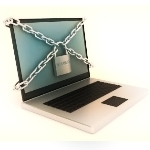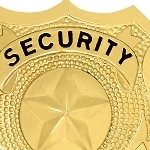10 tips for keeping your home PC safe and secure.–PC Pitstop.
Top 10 Windows 8 PC Security Tips
by Mitz from Tips4pc.com
Every time a new operating system is released, before running down to the store to buy it, people need a few really simple questions answered. For example is Windows 8 better than previous versions and why should I upgrade?
If you already have Windows 8, the following ten tips can help keep your computer safe and secure at home, or if you’re still deciding on the switch then these tips might help you decide one way or the other. As a bonus, many of the tips can help you stay safe at work also.
Security Tip #1—Be Careful What You Disable
Windows 8 and 8.1 are, by default, the most secure operating systems Microsoft has ever shipped. The only problem is that security can sometimes get in the way of convenience. To install or run third-party programs, you may be asked to disable security features like Windows SmartScreen.
It’s your computer, so this is your choice. But the most secure option will always be to keep the security feature enabled. The next most secure option is to only disable security features when you really need them disabled—then re-enable the for the rest of the time.
Security Tip #2—Use BitLocker For Encryption
Malware and hackers are scary, but one of the top threats to any system are the people with physical access. Anyone can steal your computer, or simply sit down and start looking through your files. If you store confidential data on your computer, a simple and free tip is to install Microsoft’s BitLocker tool to encrypt your files and folders.
BitLocker is easy to use and it provides the same encryption to you that many large businesses use. However, if you keep encrypted files, it’s also very important to make backups—recovering encrypted files from a damaged hard drive can be impossible.
Security Tip #3—Be Careful Of Microsoft Login
Windows 8 will let you login using a Microsoft account which will automatically sync your settings between multiple computers. This can be very convenient, but it does mean that anyone who discovers your password on one computer can access all of your computers. They may even be able to remotely access data on your other computers.
There’s nothing wrong with Microsoft Login, but you probably want to use different accounts for home and work so that a compromise in one place doesn’t mess with computers in the other place.
Article Continued Here
This excerpt appears with permission from Tips4PC.com.




